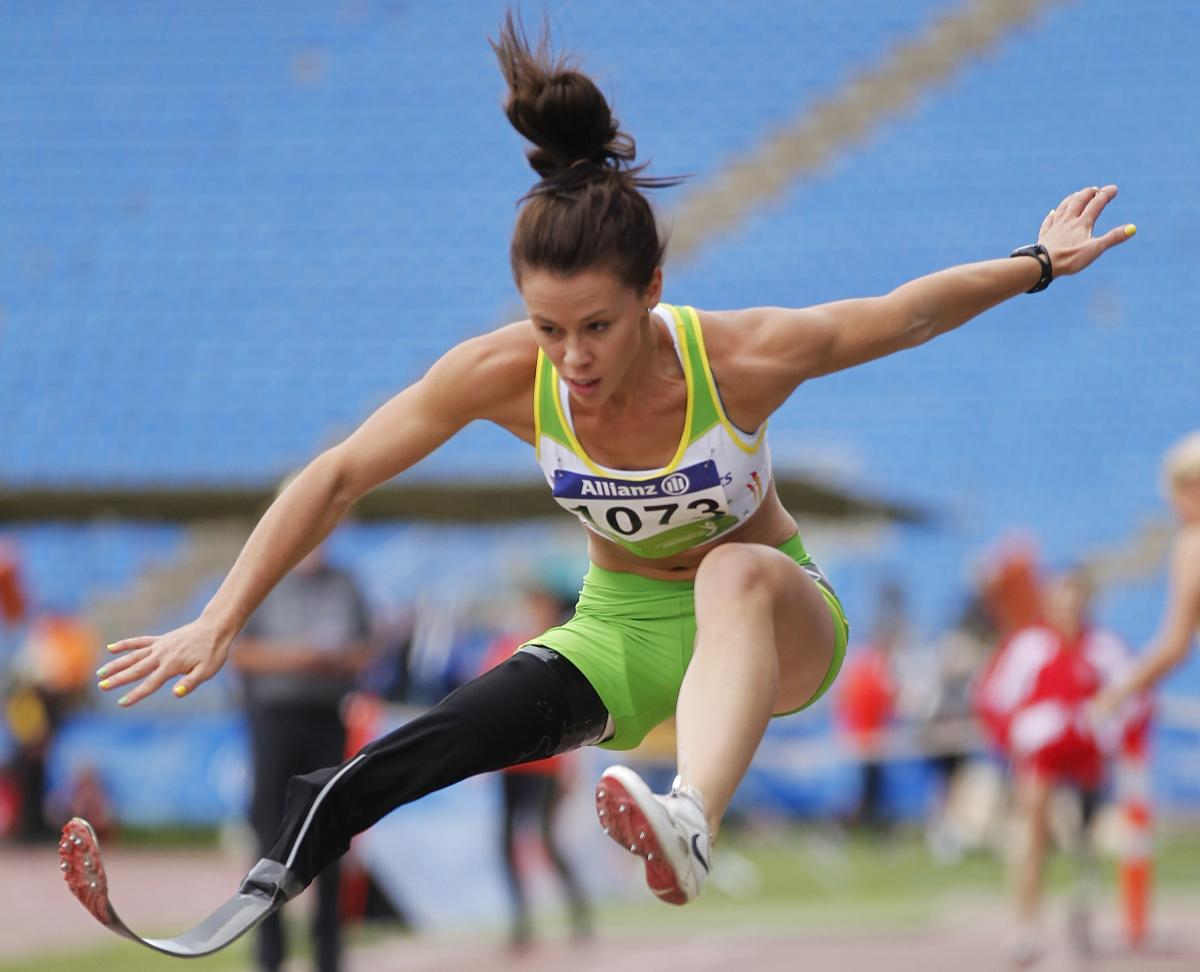Australia’s Cartwright Just Won’t Back Down
The 22-year-old amputee sprinter will definitely draw some attention in the Athletics competition at London 2012. 10 Aug 2011
Kelly Cartwright at the IPC Athletics World Championships in Christchurch, New Zealand.
“I would have liked to get two world records, but to be in the hospital only months before that and to only have a few months preparation, I’m over the moon with how I did.”
Editor’s note: This is Part 5 of an eight-part series featuring some of the top competitors in Athletics as we approach the one-year mark to the London 2012 Paralympic Games.
Kelly Cartwright’s parents placed a cat in her lap when she was released from the hospital after being diagnosed with cancer.
She received Jamaica – a present any 15-year-old would enjoy – with open arms.
Exactly one year later, when Cartwright’s right leg was amputated above the knee to give her the best chance of survival, the doctor had to amputate one of Jamaica’s legs, too, as it was found to be severely broken.
But don’t worry. Both are doing just fine these days.
Especially, Cartwright.
The 22-year-old, who holds a part-time administrative job with Australia’s ABC TV, recently moved to Melbourne to focus on training for next summer’s Paralympic Games in London – her second appearance on the big stage.
Cartwright made her international debut at the Beijing 2008 Paralympic Games, where she finished sixth in the 100m T42 sprint.
More recently, the Australian Paralympic sprinter won gold in both her events – the 100m and the Long Jump – at the 2011 International Paralympic Committee (IPC) World Championships in Christchurch, New Zealand, in January.
“I couldn’t have asked for a better jump,” Cartwright said. “I would have liked to get two world records, but to be in the hospital only months before that and to only have a few months preparation, I’m over the moon with how I did.”
Cartwright said she experienced a few problems with her stump leading up to Worlds, and even afterwards she felt some pain and discomfort at the end of her stump.
“I’ve been seeing different doctors and trying different sockets out, so training for me hasn’t been as consistent as I wish it would have been,” she said.
Now, after going to Germany to seek expert advice from Otto Bock regarding her sport prosthesis, and after getting a new socket, she is crossing her fingers that her training will be uninterrupted until London.
However, the stump adjustment has slowed her just a bit for the time being.
“For me, to change the whole leg, the knee and the socket, it’s going to take at least a couple of months to get used to it,” Cartwright said. “It is like learning something brand new. […] You feel like it’s not the best at the start, but you’ve just got to learn and get through it and train on it.”
Cartwright has already overcome the large crowds and nervous jitters at Beijing, though, and since then, she has travelled the world.
In fact, in 2009, she even climbed Mount Kilimanjaro.
“It was the hardest thing I’ve ever done in my life, mentally and physically, but it was the most amazing experience I’ve ever had in my life,” Cartwright said.
What’s the only thing that can top that climb for Cartwright?
Winning gold in London.

 Facebook
Facebook
 Instagram
Instagram
 Twitter
Twitter
 Youtube
Youtube



